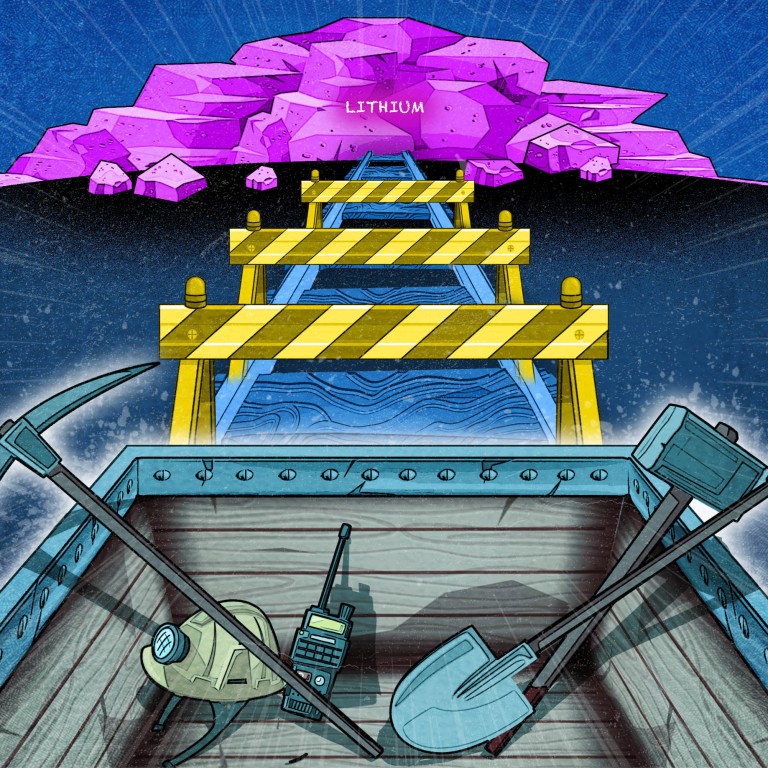
Project to dig largest lithium mine in US faces legal roadblocks despite push to reduce reliance on China and other foreign countries
- Nevada site is a priority for US goal of reducing reliance on foreign sources, including China, of the mineral used in electric vehicle batteries and other devices
- But resistance from Native American tribes and environmental watchdogs, as well as uncertainties of nascent technology, threaten delays
In northwestern Nevada, near the state’s border with Oregon and deep beneath a sprawling sagebrush desert, lies one of the largest known deposits of lithium in the US – buried treasure in the 21st century hunt for clean energy.
An essential component in manufacturing rechargeable batteries used in laptops, mobile phones and electric vehicles (EVs), the rare earth mineral is critical to the global shift from fossil fuels.
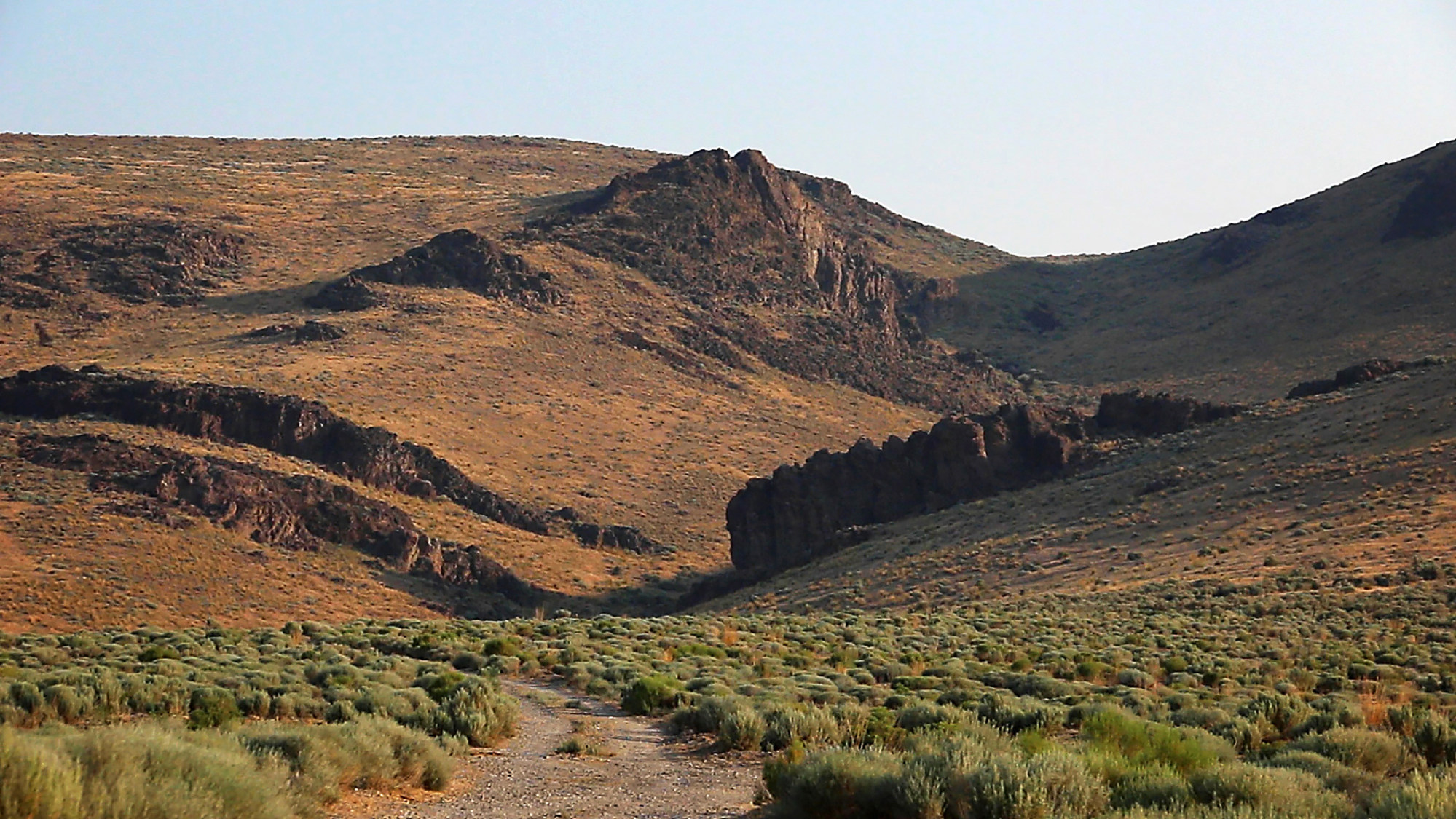
Moreover, the US produces just 1 per cent of the world’s lithium supply, so US manufacturers rely mostly on lithium produced elsewhere – a supply-chain dependency that the pandemic showed leaves the country vulnerable.
China’s standing as the world’s third-largest supplier of lithium – behind Australia and Chile – has added urgency to US efforts to prioritise domestic reserves. China also controls nearly 80 per cent of the world’s lithium processing capacity.
In March, US President Joe Biden invoked the Defence Production Act to push for rapid domestic production of critical minerals.
Last month, he signed into law the Inflation Reduction Act, which set an ambitious timeline to “localise” all EV manufacturing in the US by 2030, with all components sourced domestically or from friendly countries.
China digs in deep to retain rare earth dominance as Western shift quickens
US states like North Carolina, Arkansas, Maine and California all have large amounts of lithium – hailed as the “oil of the green century”. But Nevada might be the quickest out of the starting blocks.
With more than 15,000 lithium claims already active, according to Tyre Gray, president of the Nevada Mining Association, the state has the potential to be a “leading global producer”.
Experts regard the Thacker Pass project – approved by the US Bureau of Land Management (BLM) in the waning days of the Donald Trump administration in 2021 – as an immediate answer to Biden’s call to build the domestic supply of rare earth minerals.
Estimated to hold 179,422 tonnes of proven and probable lithium reserve mostly in sedimentary-clay form, Thacker Pass is a little over 300 miles from the country’s only operating lithium mine: Albemarle Silver Peak, also in Nevada, which produces just 6,000 tonnes of lithium carbonate annually.
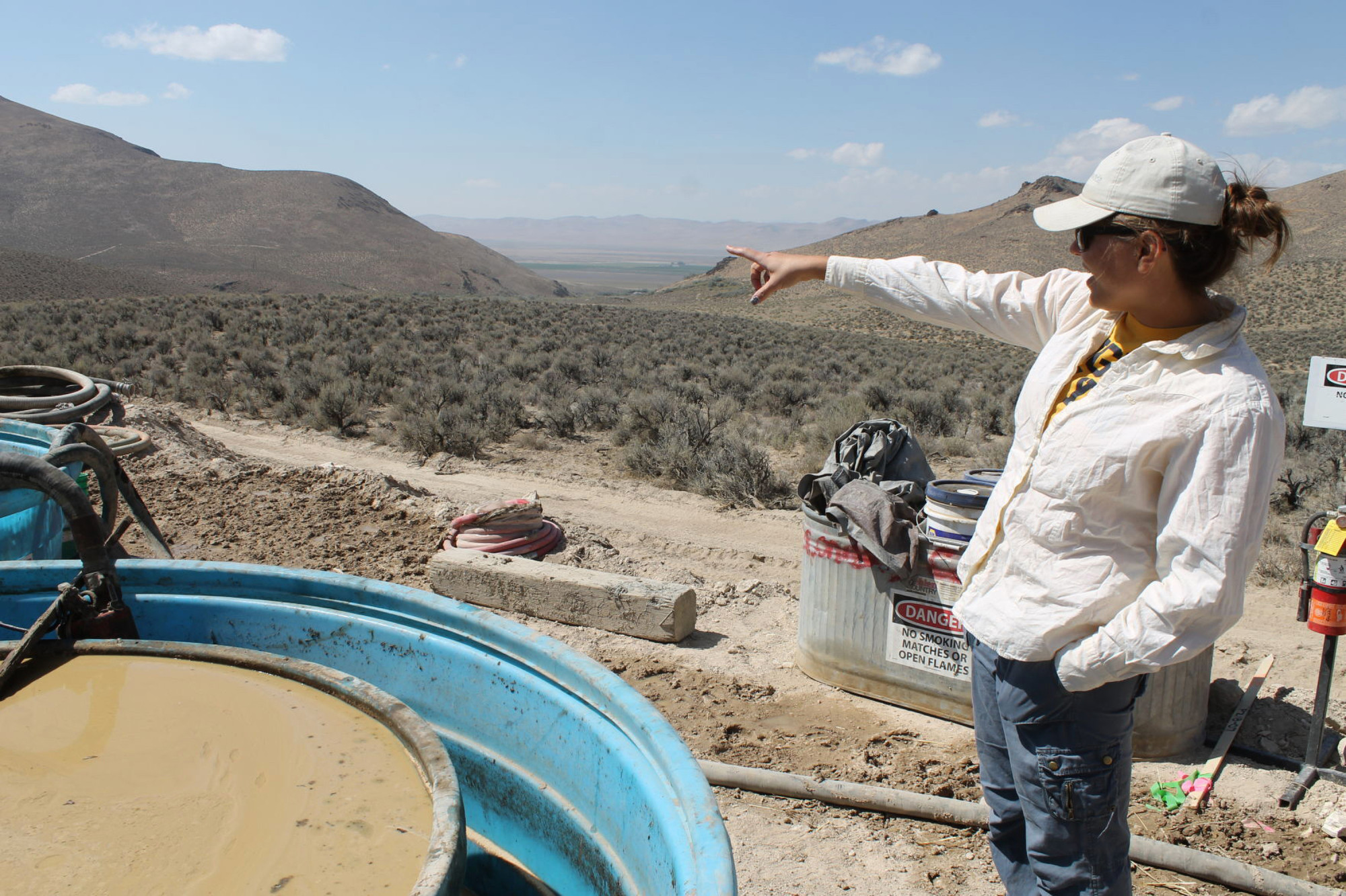
Owned by Canadian mining company Lithium Americas, Thacker Pass is forecast, when up and running, to produce between 60,000 and 80,000 tonnes of battery-grade lithium carbonate each year, using the conventional shovel-and-truck mining method.
But it will be some time before it gets there: despite the blessings of both the federal and state governments, the project faces numerous roadblocks – local resistance, nascent technology, even scepticism about a Chinese connection.
Some Native American tribes, environmental watchdogs and a local rancher have dragged the BLM to court for “rushing through” the approvals, which they claim were granted without proper assessment of the new mine’s impact on sacred cultural resources, endangered species and the environment.
Why should we become sacrifice zones for the rich people to be able to drive cars guilt-free?
Will Falk, a lawyer representing the Reno-Sparks Indian Colony, said that the mine would destroy the land and wildlife sacred to many Native Americans.
“Thacker Pass has been the site of at least two different massacres. Most recently, on September 12, 1865, federal soldiers killed between 30 and 70 Native Americans who were resisting the expansion of mining on their territories,” he said.
According to Falk, for some Native Americans the area is a cemetery of their ancestors since the soldiers never returned to clear their remains, which were scattered: “You can still find the bones of those massacred.”
In January 2021, activists began to occupy the mine site, demanding that federal authorities cancel the project.
China heatwave hits supply chain for lithium batteries and solar panels
Max Wilbert, a member of Protect Thacker Pass, which describes itself as an “independent, grass-roots collective of people”, was one of the protesters who camped there in sub-zero temperatures.
He said they took down the “permanent protest camp” in October 2021 after the BLM levied a “flagrantly ridiculous US$49,890.13 fine” against him and Falk, “and threatening more fines”.
They have appealed the fine in a local court, and have continued to camp on the site intermittently.

John Hadder, executive director of the Great Basin Resource Watch, a Reno-based non-profit also petitioning the court, said that the open-pit lithium mine would toxify groundwater if not treated, as well as damaging the desert and harming endangered birds like the golden eagle and sage grouse, both also considered sacred by Native Americans.
Hadder argued that national policies like Biden’s climate agenda adds “more pressure to the frontline communities” fighting to protect their land, water and air, as well as on state agencies that do an “incomplete” job evaluating the “real damages” of such projects.
“We are not going to fix climate change if we don’t do it right,” Hadder said. “Why should we become sacrifice zones for the rich people to be able to drive cars guilt-free?”
Glenn Miller, emeritus professor at the University of Nevada’s department of natural resources and environmental science, takes a milder view.
“There are many mines here in Nevada. The lithium mine is much more benign than the new gold mines of its size that I’ve seen,” he said, adding that he had been a critic of the mining industry for 40 years.
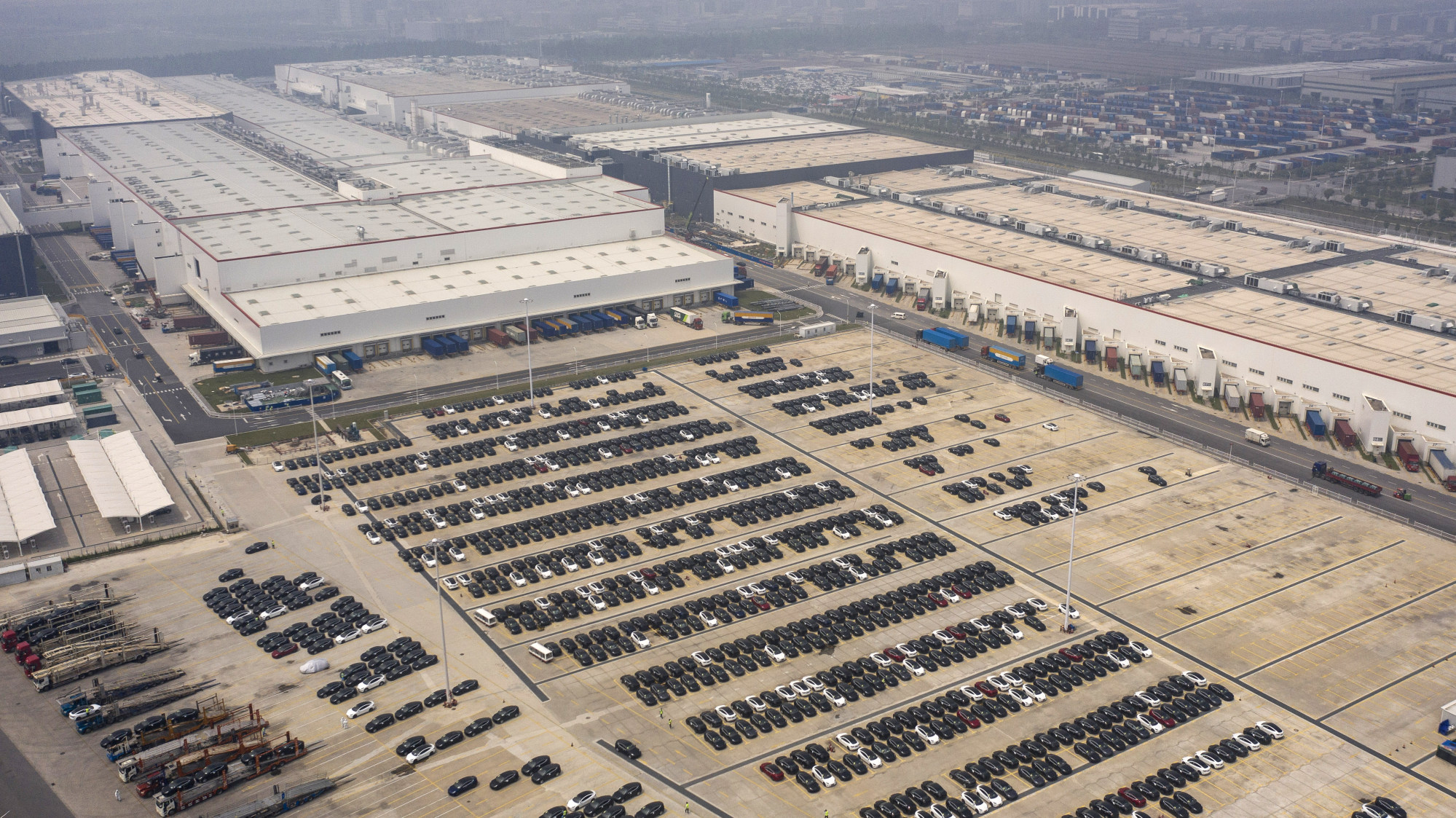
Miller noted that not all locals were protesting against the mine – it’s expected to create job opportunities – and that Lithium Americas had been in talks with the two tribes nearest to the project site.
“They have developed a fairly good relationship with them. It’s a financially poor area and they want to hire locally,” he said.
A company presentation claims that the mine will “generate” US$265 million in economic activity and pay more than US$20 million in taxes during the “approximately two-year construction period of Thacker Pass facilities”.
It is expected to employ 1,000 people over a “21-month period to build the facility” and open “supporting positions” for “approximately 300 families” in its four-decade lifespan. Pre-construction work is expected to begin later this year.
Falk contended that local residents did not possess the technical skills to work at the mine, and that workers coming from elsewhere would exacerbate crime against Native American women.
China EV battery king urges country to intensify lithium mining
Lithium Americas chief executive Jonathan Evans said that the company, which already operates a technical centre in Reno, was “a committed community partner – providing training to create a local workforce and developing one of the most environmentally sound lithium projects in the world”.
Concerns don’t end there. Some industry experts note that the Chinese mining giant Ganfeng is Lithium America’s biggest shareholder, with an 11 per cent stake.
Peter Clausi, a Canadian mining investor and activist shareholder, voiced his apprehension: “Do you think Ganfeng is a passive investor, or a company looking to source critical minerals for itself?”
Clausi said that Canada’s sole operating lithium mine, the Tanco mine in Manitoba, is owned by a Chinese company, Sinomine Resource Group, and that the mineral is shipped to China since the technology to process that grade of lithium is unavailable in Canada.
The BLM declined to comment, and Ganfeng did not reply to a request for comment. Lithium Americas declined any comment on its Chinese investors, but the company has repeatedly stated it fully owns the Thacker Pass project, and is not partnering with Ganfeng in the US.
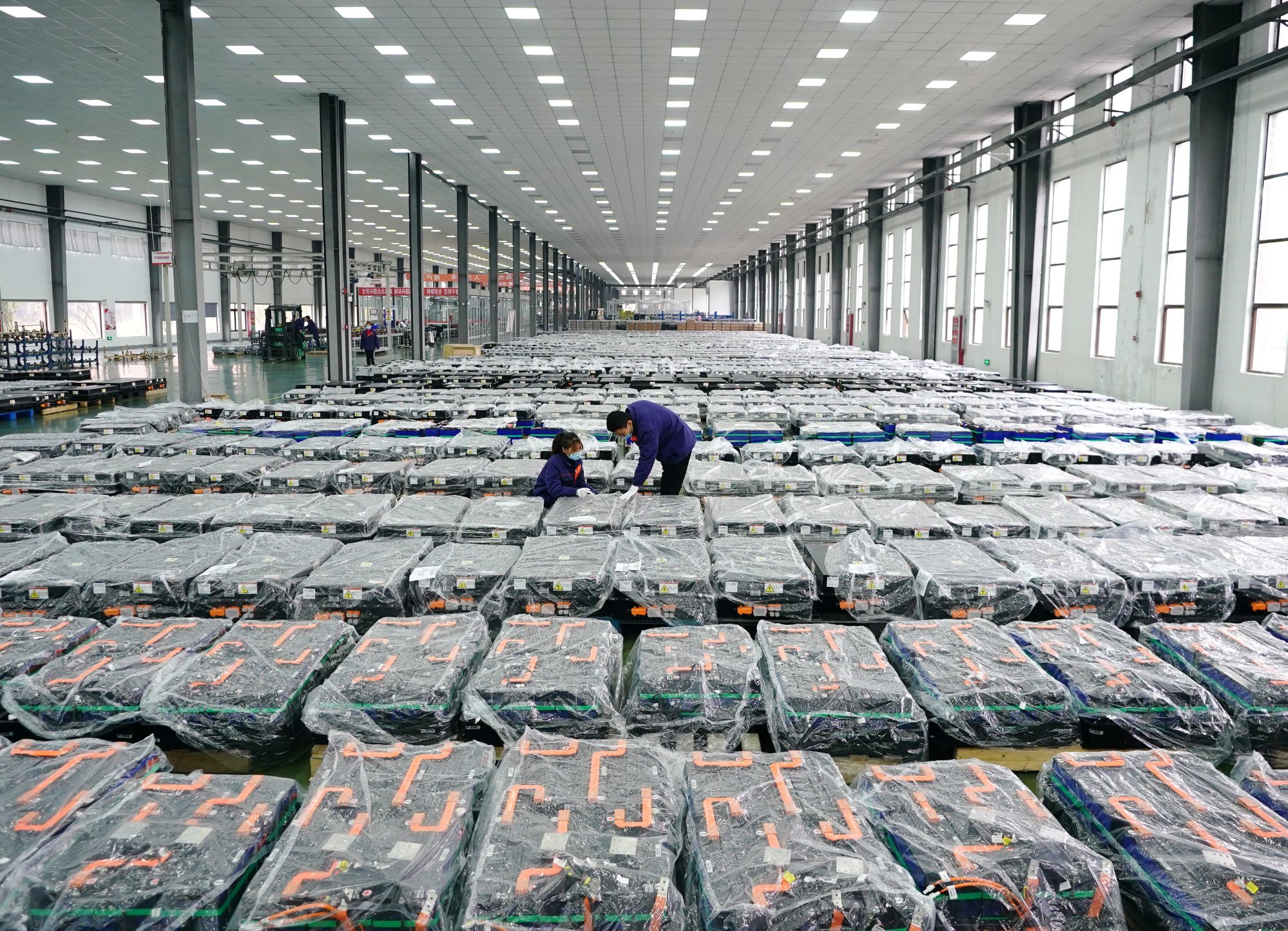
Miller said he was not worried about Ganfeng’s stake. For him the uncertainty surrounding the nascent technology matters more.
Extracting lithium from difficult sources and lower-grade deposits with minimal harm to the environment remains expensive, time-consuming and at the pilot stage.
Lithium carbonate requires additional refining before it is put in batteries. “Converting the lithium to actual battery grade material involves an anion associated with lithium PF6,” he explained. “It may have to go to China or Japan or Korea – I don’t think it’s going to go to China.
“But that’s part of the complexity of dealing with this new material.”
Lithium Americas produces a battery-grade mineral on a small scale in its Reno lab; to qualify for federal loans the company is obliged to keep China out of its supply chains.
Massive lithium deposit found near Everest as demand for critical metal surges
With incentives like large tax breaks aimed at advancing the critical mineral industry, the Biden administration has set in motion a national quest for lithium and related innovation.
Today, roughly 600 start-ups in the US are trying to upgrade lithium-ion battery technologies and create a domestic supply chain by recycling and refining lithium-ion batteries to reduce the industry’s reliance on mining.
But it would take the “best part of the decade” and billions of dollars “to establish an entirely new industry”, according to Benchmark Mineral Intelligence, a London-based provider of market price data and supply chain analysis.
And though mineral-rich Nevada could boost Biden’s plan to create a domestic battery manufacturing chain, the legal hurdles facing Thacker Pass may push back that 2030 goal of lithium self-reliance.
“We plan to contest this project to the end,” Wilbert vowed.

